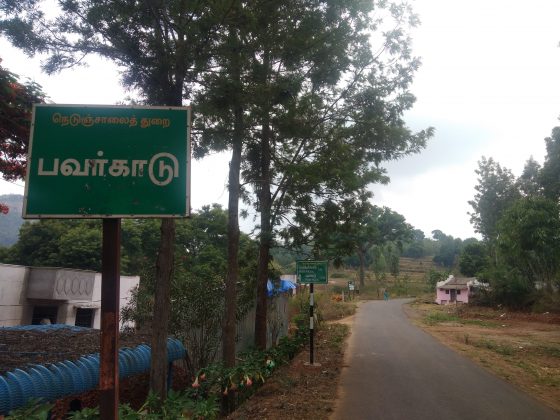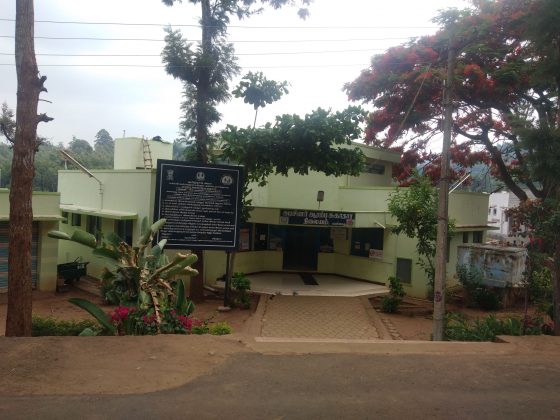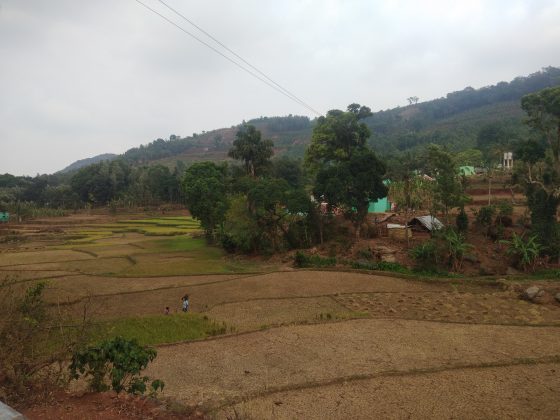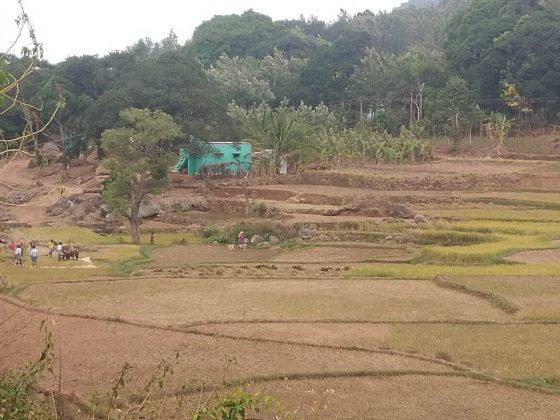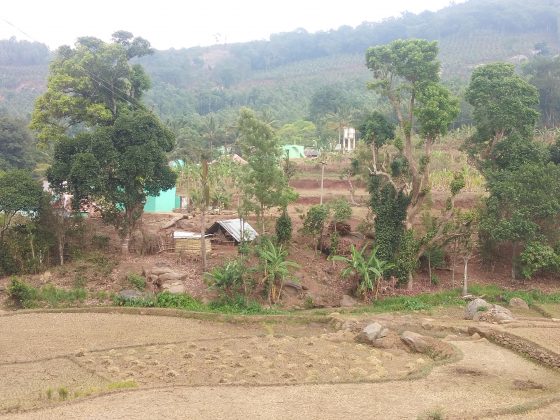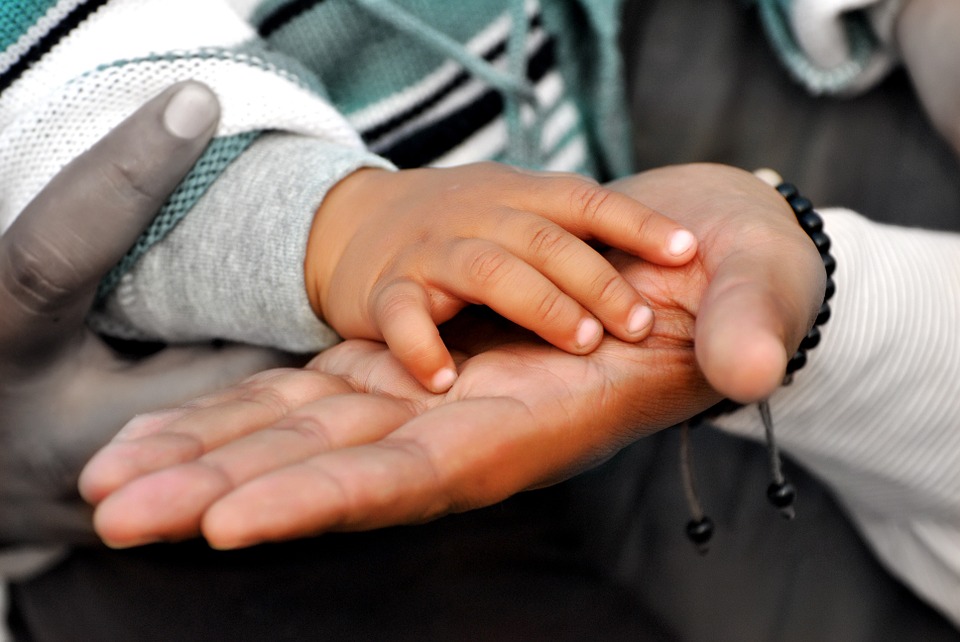
Child trade in Tamil Nadu: Why young mothers gave away their newborns

“We did not have enough money to raise a fourth girl child. This is when Murugesan approached us and asked if we were willing to give away our baby to a childless couple,” said a young mother in Pawarkadu village in Tamil Nadu’s Namakkal district.
The tribal woman in her mid-20s said she and her husband agreed, thinking about the child’s future. “We thought our newborn would grow up in a place where she would be fed enough. So we gave her away. Although they did give us money, we had not demanded any,” she said.
Kolli Hills in Namakkal district shot to limelight for the wrong reasons last week after a child trade racket was unearthed following a conversation between a retired nursing assistant R Amudhavalli and a man in Dharmapuri district that went viral on social media.
Based on a complaint from health officials, the police arrested Amudhavalli and her husband Ravichandran for allegedly selling newborns to childless couples. The police also arrested Murugesan, an ambulance driver attached to a primary health centre in the area.
Preliminary inquiries revealed that the trio was carrying out the illegal trade for over a decade now. Police officers in charge of the investigations told The Federal that Amudhavalli alone have sold as many as 11 babies so far through various other brokers. But it was Murugesan who played an important role in the racket.
“So far, it has been found that 14 babies were sold to the people in Tamil Nadu, Kerala and Karnataka,” one of the officers told The Federal, adding that the total number of babies sold could be nearly 50.
According to Namakkal Superintendent of Police Ara Arularasu, of the 14 babies that were sold to various people, the police have managed to trace the biological parents of only six. Of them, five couples are Scheduled Tribe from Kolli Hills while one couple is from Erode district. The couples from Kolli Hills work as daily wagers in farms.
The police have also traced the couples who bought the babies for huge amounts of cash. But since the babies were being raised in good condition, the police have not taken any action against them so far. However, they are yet to trace the biological parents of eight other babies and also the couples who bought the newborns.
There are about 14 village panchayats in the Kolli Hills and more than 80% of people in these villages belong to the tribal community. Even though the people here are mostly poor, according to the police, they have not been involved in any illegal activities in the past.
The police have also traced the couples who bought the babies for huge amounts of cash. But since the babies were being raised in good condition, the police have not taken any action against them so far. However, they are yet to trace the biological parents of eight other babies and also the couples who bought the newborns.
One of the mothers who agreed to give away her baby to a childless couple said her motive was not to earn money but to secure the newborn’s future.
“We got around ₹40,000 from Murugesan. But it got over within a few months as we did not have work. I did not want my child to face the same hardships and that is why we gave her away. We did not even know it was illegal,” the woman told The Federal at her residence.
According to her, there are about four such tribal women — who got married at the age of 18 or before — who have given away their babies to childless couples living in cities.
However, Amudhavalli and Murugesan have confessed to the police that of the 14 babies they have sold so far, more than 11 babies were from the tribal hamlets at the Kolli Hills.
SP Arularasu too confirmed that it was not the poor villagers who made huge amounts of money by selling their babies but the middlemen who lured the parents into the illegal act and made lakhs of rupees. “The accused people targeted the tribal people who easily fall prey to such gangs,” the SP added.
How the network operated
According to a senior police officer, the accused were operating the racket since 2012. At the time, Amudhavalli was still serving as a nursing assistant. Once a childless couple from Erode district approached her for adoption through a nurse friend working in an infertility clinic nearby.
Amudhavalli, who knew that the legal procedure for child adoption is long and won’t benefit her monetarily, approached a tribal family from the Kolli Hills. She knew that the couple had longed for a boy and felt gutted after a girl child was born for the fourth time. The offer from the Amudhavalli came as a surprise to the poor couple and they immediately agreed to give away their baby for ₹10,000.
Even though Amudhavalli’s nurse friend distanced herself from the illegal trade, egg donors frequenting infertility centres in and around the region managed to get in touch with Amudhavalli.
“Some egg donors in the region formed an internal network and started circulating contact details of childless couple who were not ready to undergo IVF or failed to conceive even after multiple rounds of IVF. Desperate to have a baby, the childless couples also agreed to pay huge amounts of money depending on the baby’s weight, skin tone and gender,” the senior police officer said.
The racket was operating across the state. “Only the middlemen who sold babies in Namakkal district have been arrested so far. But there are a number of others involved in the racket and they are yet to be investigated,” he said.
The police in Rasipuram town have arrested eight persons and booked them under anti-trafficking laws and Juvenile Justice Act. Since the network is spread across the state, Director General of Police TK Rajendran on April 29 transferred the case to the Crime Branch-Criminal Investigation Division for further investigation.
Meanwhile, health department officials are also in the process of taking stock of babies born in the last two years in the tribal settlements in and around Kolli Hills.
As many as 16 teams have been formed to a carry out a survey. Each team will be visiting the villages that come under one health sub-centre and will inquire the status of the newborns — whether a baby is still with the parents or moved out or died due to poor quality of care.
“In case of death, the parents will be asked to furnish relevant documents. The survey will be completed by April 30 and a report will be submitted to the Director of Public Health,” said G Ramesh Kumar, Assistant director of Health Services.
How poor tribal couples were targeted
According to doctors, tribal couples are easily identified and targeted as they spend more time in the primary and sub-health care centres at the time of delivery. As per a Union government scheme for tribal people, pregnant women should be regularly monitored for obstetric care and brought to hospital three days before the expected date of delivery. For this, the sub-health centre or the primary health centre are required to send their ambulance to transfer the expectant mothers to hospital.
Another doctor at Semmedu said almost all tribal couples have more than one child. Usually they go for more than two children, if both the children are girls. But since they are mostly poor and can’t afford to raise so many children, they easily fall prey to people like Murugesan.
Once the baby is born, the mother and child must be kept under observation for three days. As a result, the women and their family members remain in constant touch with nurses and other hospital staff over here.
“In the due process, the nurses get closer to the women and their families. Sometimes such deals are done even before the baby is born. Here, Murugesan took advantage as he knew women from more than one village and used to pick them up in his ambulance,” said a doctor from the primary health centre at the Kolli Hills.
Another doctor at Semmedu said almost all tribal couples have more than one child. Usually they go for more than two children, if both the children are girls. But since they are mostly poor and can’t afford to raise so many children, they easily fall prey to people like Murugesan.


